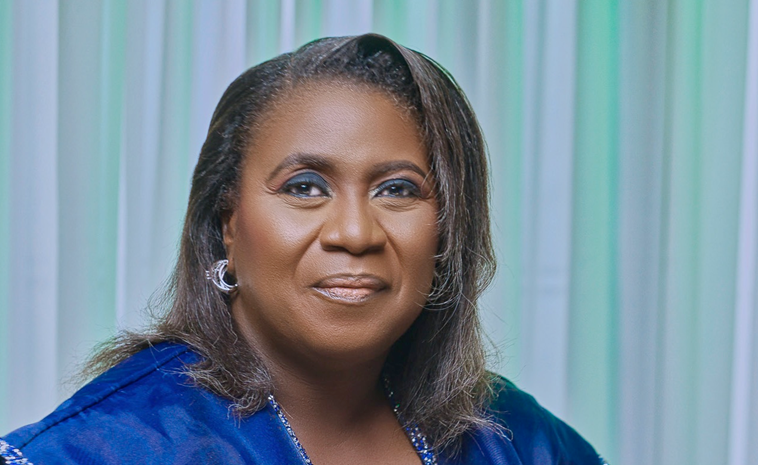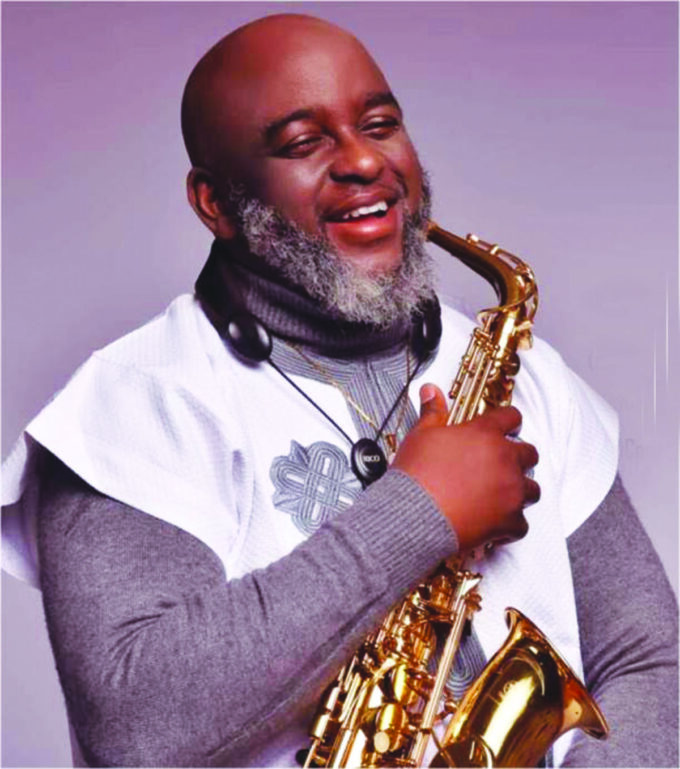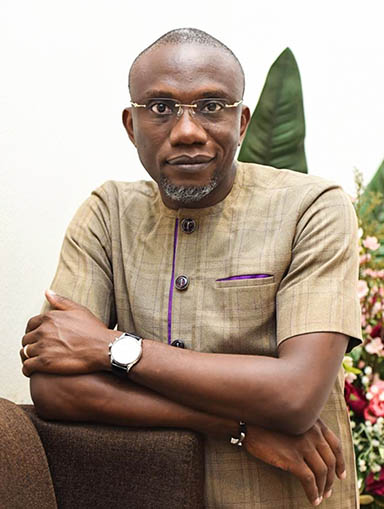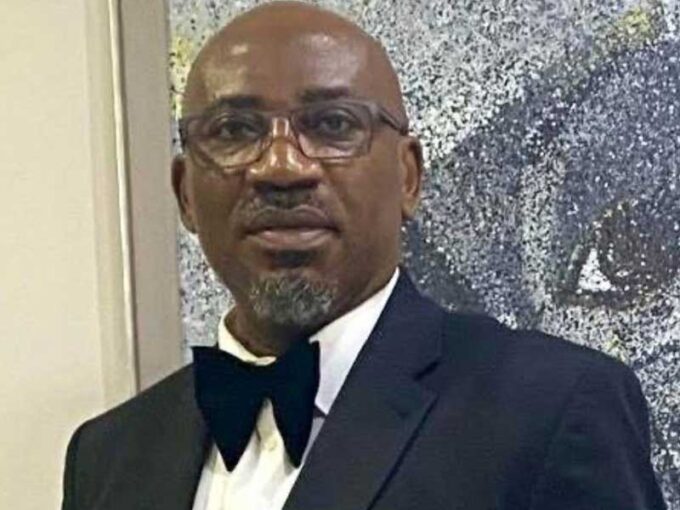Dame Ochuko Momoh is a woman of influence who prefers the quiet power of impact over the noise of visibility. A serial entrepreneur with ventures spanning construction, real estate, agriculture, and fashion, she is also the founder of the Nook International Fashion Weekend, a show committed to decency in fashion. In a recent encounter, she offers Vanessa Obioha a glimpse into her elegant yet resilient world.
Dame Ochuko Momoh is one of those wealthy and influential women who shun the spotlight-the kind that puts her in your face constantly. She prefers to work behind the scenes, letting her businesses speak for her. But in an age where visibility often defines relevance, Momoh cannot afford to stay entirely away from public attention. Even so, it took some convincing to get her to sit down for this interview.
“I’m a private person. I like my quiet life. I want to be able to walk on the streets without people easily identifying me,” she said.
At her Ikoyi residence, Momoh welcomed me alongside her brother and younger sister. I would later learn that they are a close-knit family. So close that they even do business together.
Dressed in a yellow flowered gown with her hair neatly styled, Momoh radiated elegance and poise. Her flair for fashion, she explained, came from her parents. Born in Nigeria to a Barbadian mother and a Nigerian father from Delta State, she was raised with a strong sense of style and discipline. Her father, Justice Victor Modupe Okor, was a respected judge in Rivers State and was fondly called “the judge with the shiny shoes.”
“Because his shoes were always shining. Oh, he used to be always spick-and-span,” she recalled affectionately.
“My parents were awesome, but at the same time, they pushed us to be hardworking,” she continued. “They had money, but they didn’t spoil us with money. They made us understand that you must work for what you get. And then my father used to remind us always that your name is very important. You know, the fathers of those days. Basically, my siblings and I are grateful to God for that. We had a fantastic growing up, we didn’t have issues.”
Fashion, she said, was a constant in her household as her parents were keen on looking and appearing good.
“My father was very cautious of how we looked. I keep saying that I did not own my first pair of jeans until I entered university. Even at the university, I couldn’t wear jeans at home, because he had that philosophy that it was only irresponsible people who wore jeans. So jeans were not part of our wardrobes, but he allowed us to wear pants.”
“My parents were very fashion-conscious. They were very conscious about how they looked once they stepped out. It doesn’t have to be very loud. But it had to be decent, you know, well-dressed. We grew up making sure that we always looked decent and well dressed.”
This ethos of decency would later inspire the launch of Nook International Fashion Weekend, a fashion show held in Abuja that champions modest fashion. For three days, fashion lovers gather to witness innovative designs that celebrate creativity without compromising modesty. The event also serves as a mentoring platform, having trained over 400 emerging talents through a one-month etiquette program.
Her Christian background also played a role in founding the event.
“As a Christian woman, I began to get very irritated when I saw that fashion these days just has to do with nakedness,” she said. “I was on a flight one day, coming from Abuja to Lagos, and there was this girl who entered the plane. Even as a woman, I was very embarrassed. And then I heard two men sitting behind me, saying how in our days, we used to beg women to even see their legs. Now they just show it to us, and I melted on my chair. I was so embarrassed. That was when I started really taking interest.”
She continued: “In fashion shows today, the men are clothed and the women are naked, and I’m like, Why? Why must we be naked?”
Naked fashion has been a major attraction not only on runways but also on Hollywood red carpets of major events like the Met Gala, Oscars and Grammys. These influences have sometimes found their way into Nigerian pop culture. Momoh partly attributes this has played a role in the kind of apparel displayed at fashion shows. But she believes that designers can and should do better.
“To be honest, we didn’t use to dress this way, especially our girls. And like I said, growing up, my mother would not allow you to leave the house like that. We had been taught and nurtured that our body is our pride, especially for a woman. But you see, everybody’s naked on the streets, and the one that kills me is especially on the runway. So I decided that we can also do a fashion show and have decency as our key. And let the designers begin to understand that.”
Changing minds was not easy. At inception, Momoh recalled that one designer told her that it is nudity that attracts people to fashion shows. She quickly corrected her.
“I told her that it’s because of what she’d put in her head. Nakedness will actually make some people revolt. Why not try decent dresses and see the effect?”
Many designers didn’t turn up in that first edition held in 2022, but as the years rolled by, she won not a few converts. Now, Nook International Fashion Weekend has become one of the anticipated fashion shows in Abuja, especially during the Valentine’s Day season, a strategic move by Momoh to align it with commercial opportunities.
“I am someone who has always loved to take an unfinished product and turn it around, and it gives me that excitement when I see what I have created at the end of the day,” she enthused.
A serial entrepreneur, Momoh knew from a young age that she wanted to run her own businesses. As a teen, she often brought clothes and jewellery from her travels to sell to friends. That continued even after marriage.
“And most of the time I embarked on these trips, I was heavily pregnant.”
Her entrepreneurial journey began with construction before she married. A graduate of accounting from the University of Science and Technology in Port Harcourt, her first foray into real estate started with building her own home.
“I remember the first time my father called my husband. My husband had just bought a Mercedes 200. My father called us and asked my husband, ‘Where’s your house?’ He made us understand that one can never go wrong with real estate. A car can be stolen, broken down, or involved in an accident, and all the money invested in it would be gone. But real estate is always a better investment. So that was how the real estate company started.”
From there, she branched into property supervision. When interest in real estate waned around 2015, she diversified into agriculture. On a friend’s advice, she turned her fallow land into a productive farm. A visit to Israel, renowned for smart farming, enabled her to get superior seeds, setting her farm apart. Insecurity has since forced her to scale back, but she remains active in the sector. Today, under the Blaid Group, Momoh runs six subsidiaries: Blaid Construction, Blaid Properties, Blaid Engineering, Blaid Farm, Solar Blaid, and the Nook Apartments (from which the fashion show gets its name).
She is also the founder of The Praying Women, a Christian ministry she began 17 years ago with two friends as a spiritual alternative to idle gatherings.
“Instead of women gathering to gossip, why not gather to pray?”
What began in Rivers State has grown into a global network of women who meet every Thursday for prayer and hold an annual convention every November. A devoted Methodist, Momoh credits her husband, Haruna Momoh, former Managing Director of Pipelines and Products Marketing Company (PPMC), for allowing her to practice her faith freely.
“My husband is wonderful. He has allowed me to practice my Christianity. He practices his Islam, and we get on very well.”
Still, life hasn’t been without challenges. Years ago, her husband was implicated in a corruption case, and she, too, was accused. Though later acquitted, the experience was deeply painful. It’s not a comfortable topic for her, yet she shared her experience during that harrowing period.
“I remembered the first press that was published about me. A lot of things were said about me, and for a moment, I wondered where all of this was coming from. I asked the Lord what was going on, and the response I got was, ‘Everything is happening for your good.’ Then, switching to Pidgin, she said: “How I wan take understand that one na?” meaning “How do I understand that?”
Her husband encouraged her, reminding her that she owed no one but God an explanation. Her children also reassured her of their unwavering faith in her innocence. That belief gave her peace. “I know who I am, what I did and did not do, and I know that God’s mercy will vindicate me.”
She lost some friends during that time, but has chosen to forgive them. In the end, she draws strength from the one constant in her life, her family.

















Leave a comment